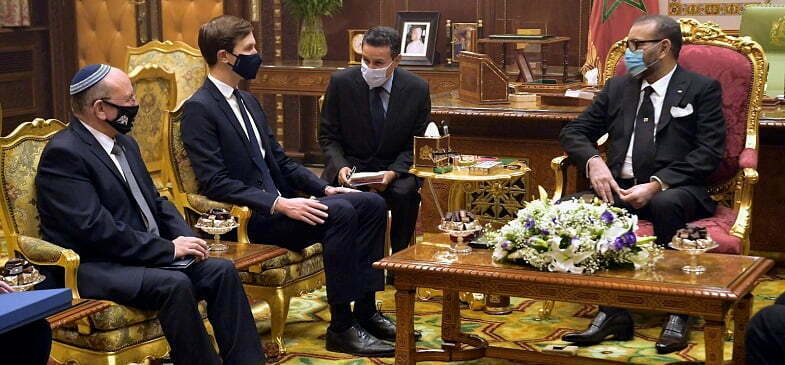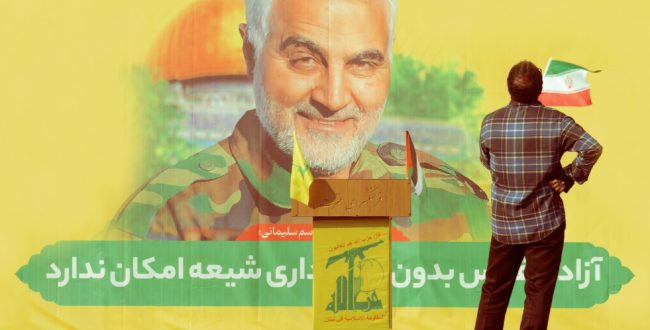On December 22, 2020 Israel, Morocco and the United States signed a joint statement based on a statement made by the President of the United States on December 10, 2020, according to which “the United States recognizes Moroccan sovereignty over the entire Western Sahara territory and reaffirms its support for Morocco’s serious, credible, and realistic autonomy proposal as the only basis for a just and lasting solution to the dispute over the Western Sahara territory.” According to both the President’s statement and the joint statement, the United States “believes that an independent Sahrawi State is not a realistic option for resolving the conflict and that genuine autonomy under Moroccan sovereignty is the only feasible solution.”
International developments regarding Western Sahara, and even more so, recognition of Morocco’s sovereignty there, are of special interest to Israel, because the conflict over the Western Sahara has similar factual and legal characteristics to that of the conflict over the status of the West Bank (and Gaza). Factually, both cases involve a territory that is no longer under the control of an administrating state (Britain) or a sovereign state (Spain), but no new state has been established in it. In both cases a neighboring state took control of the territory: in the West Bank these were Jordan and then Israel, in Western Sahara it was Morocco (and in another part of the region – Mauritania, which later abandoned its claims on the territory.) In both cases the states effectively controlling the territories encouraged the settlement of their nationals within them. Morocco did so in a public operation, carefully timed and carried out with military backing (starting with “the Green March” of over 300,000 Moroccan nationals into Western Sahara in 1975, even before the Spanish forces retreated from the territory). There is no need to elaborate on the Israeli settlement project. In both cases, the states controlling the territories exploit the natural resources in the territories for the benefit of their own nationals, while excluding the local populations.
The legal characteristics are also similar: Morocco claims historical rights over West Sahara, as Israel does over the West Bank. In both cases the international community recognizes the population residing in the territory (before that territory was seized, by Morocco and Israel, respectively), as a people benefiting from the right to self-determination, namely the right to freely determine its political, social and economic status. It is from this right that the prohibition against unilateral annexation by the administering state stems. In both cases the international view is that the will of the people in the territory is to gain independence, and with regard to both cases, the prohibition on annexation and the right of the people to realize the right to self-determination have received international recognition by the International Court of Justice (in a 1975 advisory opinion regarding Western Sahara, and a 2004 advisory opinion regarding the separation barrier). In both territories, the political body identified as the representative of the population declared the establishment of an independent state – the Polisario declared the establishment of the Saharan Arab Democratic Republic (SADR) in 1976, and the PLO declared the independence of Palestine in 1988. Neither putative state enjoys universal recognition, although Palestine enjoys very wide recognition by some 140 states as well as a special status in the UN. SADR is only recognized by about 80 states.
Notwithstanding these similarities, a significant difference should be noted: despite the fact that the rights of the Sahrawi people have been violated in matters such as control over the natural resources in the region as mentioned above, Sahrawis are Moroccan nationals. Israel’s control over the West Bank, on the other hand, involves a formal distinction between its nationals and the residents of Palestinian territory, who are subject to a regime of belligerent occupation, which by its nature denies them basic rights.
In light of the factual and legal similarities between the two cases, it is interesting to note the different treatment that Morocco and Israel receive. For instance, the EU has held strong in its refusal to conduct any economic and legal relationships with Israel that might imply recognition of the legal or political legitimacy of the settlements or of Israeli sovereignty over the West Bank, and takes legal steps in order to formalize this refusal. In contrast, the EU has entered into various trade agreements with Morocco that allow Morocco to benefit from its economic activities in Western Sahara, although the EU does denies that the agreements do imply recognition of Morocco’s territorial claim over the region. The UN, which was mandated to promote the resolution of the conflict in West Sahara via a referendum, has been increasingly willing to accept Moroccan edicts regarding the referendum and its conditions. This approach reduces the chances of the Sahrawis to determine their own fate freely.
It is in this context that the American move could be significant for Israel, in terms both of the latter’s claim to the West Bank and its claim that a double standard is applied to it in the international sphere. The current Israeli policy thus benefits not only from the public normalization of relations with Morocco as stipulated in the joint statement, but also directly from the recognition by the United States of Morocco’s sovereignty over Western Sahara. The position of the United States towards Israel during the Trump era (and to some extent even earlier) has been much less firm that that of the UN. For instance, in addition to avoiding taking a clear stance on the status of the settlements, President Trump expressed willingness to recognize the annexation of the West Bank should Israel make such a move.
On the face of it, Morocco’s claim over Western Sahara contradicts its support for a two-state solution (which rules out Israeli annexation of the West Bank). This is, apparently, why the joint statement includes the King of Morocco’s reiteration of “the coherent, constant and unchanged position of the Kingdom of Morocco on the Palestinian question.” This statement may be mere lip service, but it formally refutes the claims of those who believe that Morocco has betrayed the Palestinians. Indeed, the inconsistencies in Morocco’s policies are hardly new, since its claim to sovereignty over Western Sahara is long standing, as is its willingness to normalize relations with Israel. The novelty in Morocco’s current policy is in its formalization and publication at a time when Israel has been expressing annexationist aspirations. It appears that Morocco does not fear criticism in this regard. One reason may be that the Arab world has been turning its back on the Palestinians for a while now, and Morocco is no longer an exception in this sense. Another reason may be that whatever criticism there is, the benefit for Morocco from American support for its sovereignty over West Sahara outweighs any potential damage.


















